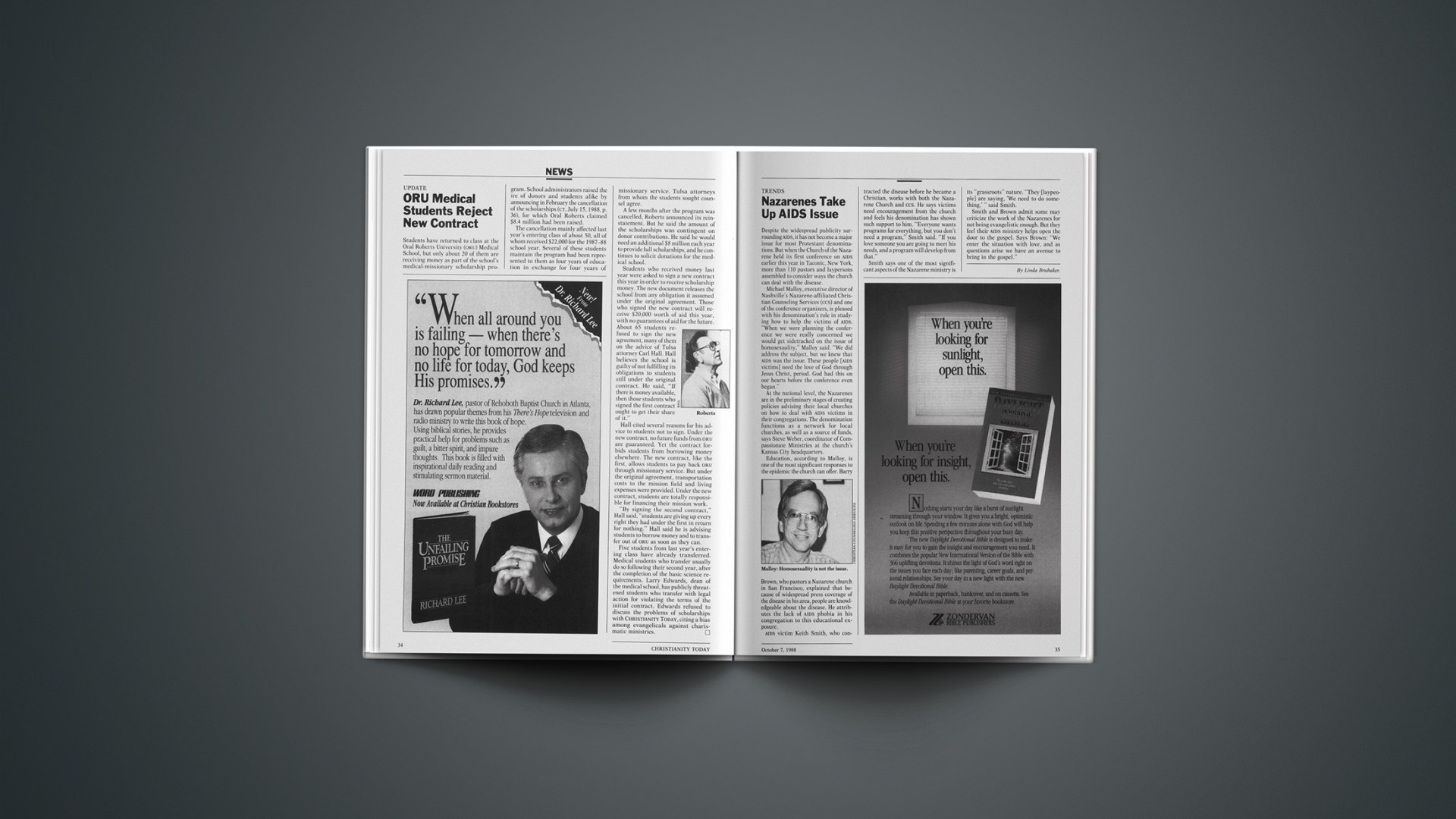UPDATE
Students have returned to class at the Oral Roberts University (ORU) Medical School, but only about 20 of them are receiving money as part of the school’s medical-missionary scholarship program. School administrators raised the ire of donors and students alike by announcing in February the cancellation of the scholarships (CT, July 15, 1988, p. 36), for which Oral Roberts claimed $8.4 million had been raised.
The cancellation mainly affected last year’s entering class of about 50, all of whom received $22,000 for the 1987–88 school year. Several of these students maintain the program had been represented to them as four years of education in exchange for four years of missionary service. Tulsa attorneys from whom the students sought counsel agree.
A few months after the program was cancelled, Roberts announced its reinstatement. But he said the amount of the scholarships was contingent on donor contributions. He said he would need an additional $8 million each year to provide full scholarships, and he continues to solicit donations for the medical school.
Students who received money last year were asked to sign a new contract this year in order to receive scholarship money. The new document releases the school from any obligation it assumed under the original agreement. Those who signed the new contract will receive $20,000 worth of aid this year, with no guarantees of aid for the future. About 65 students refused to sign the new agreement, many of them on the advice of Tulsa attorney Carl Hall. Hall believes the school is guilty of not fulfilling its obligations to students still under the original contract. He said, “If there is money available, then those students who signed the first contract ought to get their share of it.”
Hall cited several reasons for his advice to students not to sign. Under the new contract, no future funds from ORU are guaranteed. Yet the contract forbids students from borrowing money elsewhere. The new contract, like the first, allows students to pay back ORU through missionary service. But under the original agreement, transportation costs to the mission field and living expenses were provided. Under the new contract, students are totally responsible for financing their mission work.
“By signing the second contract,” Hall said, “students are giving up every right they had under the first in return for nothing.” Hall said he is advising students to borrow money and to transfer out of ORU as soon as they can.
Five students from last year’s entering class have already transferred. Medical students who transfer usually do so following their second year, after the completion of the basic science requirements. Larry Edwards, dean of the medical school, has publicly threatened students who transfer with legal action for violating the terms of the initial contract. Edwards refused to discuss the problems of scholarships with CHRISTIANITY TODAY, citing a bias among evangelicals against charismatic ministries.










